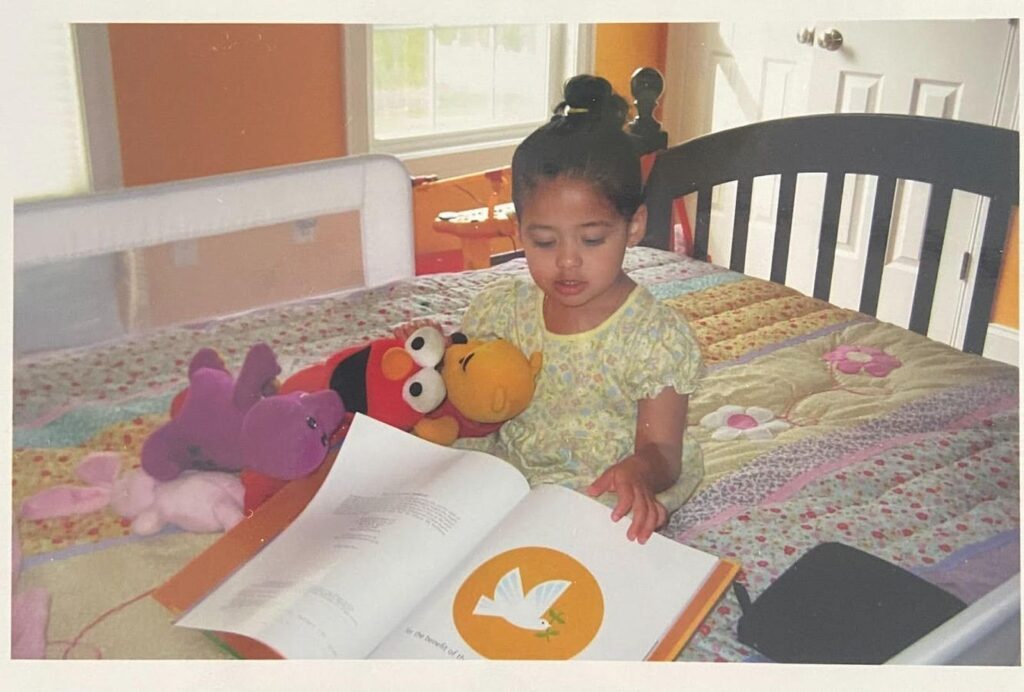A friend of mine had warned me in advance not to discuss politics in front of his family because disagreements often lead to fights at family events. “What is your political affiliation?” they asked as soon as I sat down. As someone who prefers to avoid conflict and controversy, I tried desperately to follow my friend’s orders and avoided the question at all costs. I knew that if I joined, they wouldn’t be able to block my point of view, and I knew how bad the conversation would be. I remembered a conversation I had with my family. The conversations often turned into shouting matches and hurt feelings. The last thing you want is for the conversation to go from research to discussion, especially with someone you just met. But before I fully answered, I found myself thinking about how my beliefs were formed over time.
Learning never stops when you become an adult, but young children learn relatively faster than adults. Take accents for example. I spent my childhood in Connecticut, and even though I lived in Texas during my most influential years, the accent I speak today is more pronounced in Connecticut than my southern central Texas accent. Much closer to a suburban accent.
Leah Gomez learns to read as a child
Leah Gomez
But what children learn in early childhood can go far beyond accents. We can attribute our personality, values, emotions, and even self-esteem to our childhood. I would go so far as to say that these attributes shape our views on policy and our political positions, but they don’t have to define who you become.
An article published in Psychology Today in 2020 analyzes the results of a variety of studies detailing how parental methods influence future political views as adults. One key finding is that “Republicans are more likely than Democrats to recall that their parents were strict and authoritarian.” In the same article, the authors discuss a similar study conducted by the University of California, Irvine, which found that children with insecure attachment were more likely to be conservative. On the other hand, children who had avoidant attachment grew up to be more free. So if our political views were influenced long ago by a series of events beyond our control, how can we expect America’s polarization to improve? In an increasingly polarized world, it feels like we have no say in what should be our direct control.
Looking back at my childhood, I can see how my parents influenced my beliefs today. Since I was 7 years old, I wanted to be like my parents, so I decided which political party I would vote for when I grew up. As I grew older and formed my opinions, my political ideology did not change. In high school, my closest friends happened to share the same ideology as me. Their influence only reinforced the views I already had, which made me more likely to stick with those relationships. However, I have quite a few friends who have very different views than I do, and I have learned to avoid political conflict at all costs. That didn’t change the fact that they were great friends to me, but I knew we shouldn’t talk about politics.
But everything changed when I was asked, “What is your political affiliation?” I had to choose between continuing the potentially disastrous conversation or changing the subject and avoiding conflict. There were several other people in the room waiting to hear me. So, after thoughts racing through my head and an awkward silence, I impulsively answered the question, and the pressure of the moment hit me. After a 30-minute conversation, I was surprised to learn that despite our contrasting perspectives, we had much in common and were concerned about many of the same issues. Our differences stemmed from how we thought those issues should be resolved, but there were also moments of congruence for both of us. I underestimated my ability to find common ground with others. Had I known this earlier in life and thought of these conversations as learning opportunities rather than fights, it might have led to more insights.
Arguing with someone who has a different opinion is essential to learning as an adult because it makes you a better listener and more empathetic, even if your opinion doesn’t change. Rather than avoid confrontation, take advantage of opportunities to challenge your opinions and diversify your perspectives. Polarization feels like an inevitable part of American politics, but there are ways to have conversations with others that don’t end in bitterness.
More than 1,060 universities are currently participating in the ALL IN Campus Democracy Challenge, including the University of Maryland, College Park. Learn more about ALL IN and support our work.



